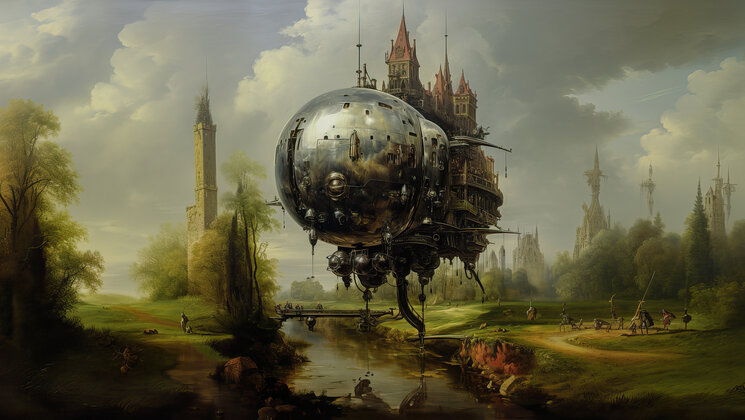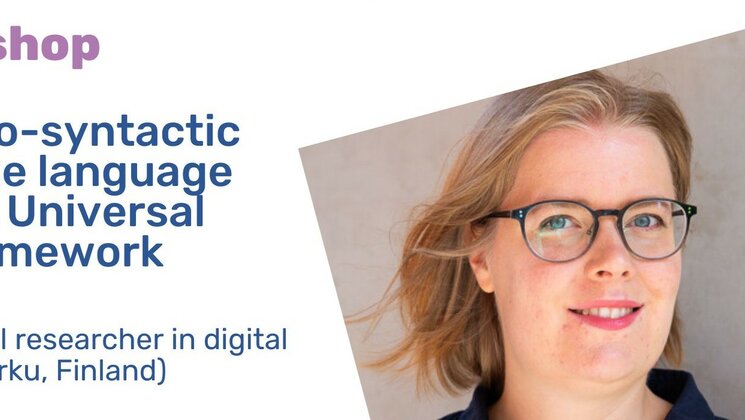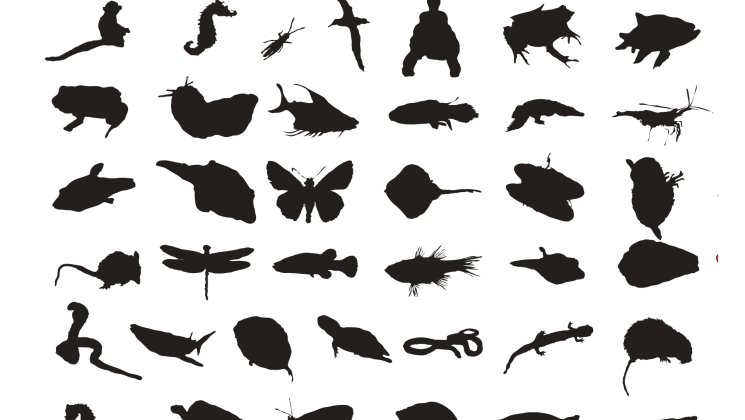-
Faculty of Arts and HumanitiesDean's Office, Faculty of Arts and HumanitiesJakobi 2, r 116-121 51005 Tartu linn, Tartu linn, Tartumaa EST0Institute of History and ArchaeologyJakobi 2 51005 Tartu linn, Tartu linn, Tartumaa EST0Institute of Estonian and General LinguisticsJakobi 2, IV korrus 51005 Tartu linn, Tartu linn, Tartumaa ESTInstitute of Philosophy and SemioticsJakobi 2, III korrus, ruumid 302-337 51005 Tartu linn, Tartu linn, Tartumaa EST0Institute of Cultural ResearchÜlikooli 16 51003 Tartu linn, Tartu linn, Tartumaa EST0Institute of Foreign Languages and CulturesLossi 3 51003 Tartu linn, Tartu linn, Tartumaa EST0School of Theology and Religious StudiesÜlikooli 18 50090 Tartu linn, Tartu linn, Tartumaa EST0Viljandi Culture AcademyPosti 1 71004 Viljandi linn, Viljandimaa EST0Professors emeritus, Faculty of Arts and Humanities0Associate Professors emeritus, Faculty of Arts and Humanities0Faculty of Social SciencesDean's Office, Faculty of Social SciencesLossi 36 51003 Tartu linn, Tartu linn, Tartumaa EST0Institute of EducationJakobi 5 51005 Tartu linn, Tartu linn, Tartumaa EST0Johan Skytte Institute of Political StudiesLossi 36, ruum 301 51003 Tartu linn, Tartu linn, Tartumaa EST0School of Economics and Business AdministrationNarva mnt 18 51009 Tartu linn, Tartu linn, Tartumaa EST0Institute of PsychologyNäituse 2 50409 Tartu linn, Tartu linn, Tartumaa EST0School of LawNäituse 20 - 324 50409 Tartu linn, Tartu linn, Tartumaa EST0Institute of Social StudiesLossi 36 51003 Tartu linn, Tartu linn, Tartumaa EST0Narva CollegeRaekoja plats 2 20307 Narva linn, Ida-Virumaa EST0Pärnu CollegeRingi 35 80012 Pärnu linn, Pärnu linn, Pärnumaa EST0Professors emeritus, Faculty of Social Sciences0associate Professors emeritus, Faculty of Social Sciences0Faculty of MedicineDean's Office, Faculty of MedicineRavila 19 50411 Tartu linn, Tartu linn, Tartumaa ESTInstitute of Biomedicine and Translational MedicineBiomeedikum, Ravila 19 50411 Tartu linn, Tartu linn, Tartumaa ESTInstitute of PharmacyNooruse 1 50411 Tartu linn, Tartu linn, Tartumaa ESTInstitute of DentistryL. Puusepa 1a 50406 Tartu linn, Tartu linn, Tartumaa ESTInstitute of Clinical MedicineL. Puusepa 8 50406 Tartu linn, Tartu linn, Tartumaa ESTInstitute of Family Medicine and Public HealthRavila 19 50411 Tartu linn, Tartu linn, Tartumaa ESTInstitute of Sport Sciences and PhysiotherapyUjula 4 51008 Tartu linn, Tartu linn, Tartumaa ESTprofessors emeritus, Faculty of Medicine0associate Professors emeritus, Faculty of Medicine0Faculty of Science and TechnologyDean's Office, Faculty of Science and TechnologyVanemuise 46 - 208 51003 Tartu linn, Tartu linn, Tartumaa ESTInstitute of Computer ScienceNarva mnt 18 51009 Tartu linn, Tartu linn, Tartumaa ESTInstitute of GenomicsRiia 23b/2 51010 Tartu linn, Tartu linn, Tartumaa ESTEstonian Marine Institute0Institute of PhysicsInstitute of ChemistryRavila 14a 50411 Tartu linn, Tartu linn, Tartumaa ESTInstitute of Mathematics and StatisticsNarva mnt 18 51009 Tartu linn, Tartu linn, Tartumaa EST0Institute of Molecular and Cell BiologyRiia 23, 23b - 134 51010 Tartu linn, Tartu linn, Tartumaa ESTTartu ObservatoryObservatooriumi 1 61602 Tõravere alevik, Nõo vald, Tartumaa EST0Institute of TechnologyNooruse 1 50411 Tartu linn, Tartu linn, Tartumaa ESTInstitute of Ecology and Earth SciencesJ. Liivi tn 2 50409 Tartu linn, Tartu linn, Tartumaa ESTprofessors emeritus, Faculty of Science and Technology0associate Professors emeritus, Faculty of Science and Technology0Area of Academic SecretaryHuman Resources OfficeÜlikooli 18, ruumid 302 ja 304 50090 Tartu linn, Tartu linn, Tartumaa EST0Area of Head of FinanceFinance Office0Area of Director of AdministrationInformation Technology Office0Administrative OfficeÜlikooli 17 (III korrus) 51005 Tartu linn, Tartu linn, Tartumaa EST0Estates Office0Marketing and Communication OfficeÜlikooli 18, ruumid 102, 104, 209, 210 50090 Tartu linn, Tartu linn, Tartumaa EST0Area of Vice Rector for Academic AffairsOffice of Academic AffairsUniversity of Tartu Youth AcademyUppsala 10 51003 Tartu linn, Tartu linn, Tartumaa ESTStudent Union OfficeÜlikooli 18b 51005 Tartu linn, Tartu linn, Tartumaa EST0Centre for Learning and TeachingArea of Vice Rector for ResearchUniversity of Tartu LibraryW. Struve 1 50091 Tartu linn, Tartu linn, Tartumaa ESTGrant OfficeArea of Vice Rector for DevelopmentCentre for Entrepreneurship and InnovationNarva mnt 18 51009 Tartu linn, Tartu linn, Tartumaa EST0University of Tartu Natural History Museum and Botanical GardenVanemuise 46 51003 Tartu linn, Tartu linn, Tartumaa EST0International Cooperation and Protocol Office0University of Tartu MuseumLossi 25 51003 Tartu linn, Tartu linn, Tartumaa EST0Area of RectorRector's Strategy OfficeInternal Audit Office
Doctoral defence: Marit Karelson „Le Temps d’engagement dans les œuvres d’André Gide et de Johannes Semper: les univers fictionnels entre l’élan vital et la littérature engagée“
On 17 November at 12:00, Marit Karelson will defend her doctoral thesis „Le Temps d’engagement dans les œuvres d’André Gide et de Johannes Semper: les univers fictionnels entre l’élan vital et la littérature engagée“.
Supervisor:
Tanel Lepsoo
Opponents:
Jean-Michel Wittmann, Lorraine’i ülikooli professor
Kaia Sisask, Tallinna ülikooli dotsent
Summary
The thesis explores the literary works of André Gide (1869-1951) and Johannes Semper (1892-1970) with a specific aim to analyse time in their fictional worlds. The concept of time is examined through the essays of Gide and Semper as well as through the writings of Jean-Paul Sartre, Henri Bergson, Paul Ricœur, and Jacques Noiray. Inspired by Sartre’s idea of “committed writing”, I have developed the concept of “committed time” for analysing the works of Gide and Semper. The term refers to the active role of a writer in attempting to bring about societal change.
In the fictional worlds of Semper and Gide, time represents the plurality of an individual’s consciousness. In the works of both authors, time emerges when the bodies of the characters constitute images which can be presented as outside themselves. Consequently, the characters become “others” – those that they are not. I analyse these images through Sartre’s concept of “possibility”, which refers to the idea that individuals possess the capacity to imagine the future as being outside the present. The images of “possibility” in Gide's works reveal a gradual transformation of time into action, represented by a progressive falling apart of a recognizable temporal structure. In Semper's work, the bodies of characters not only exist outside their own selves but also form a network of interconnected “possibilities” with other juxtaposed bodies. Semper's prose, more explicitly than Gide's, portrays the continual development of the fictional world as a plural organism characterized by Bergson’s concepts of “duration” and “élan vital.” The development of the network of characters in the works of Gide and Semper reflects the idea of societal progress and highlights the conviction of the two authors regarding the pivotal role of individuals’ actions in shaping society.
Doctoral defence: Marit Karelson „Le Temps d’engagement dans les œuvres d’André Gide et de Johannes Semper: les univers fictionnels entre l’élan vital et la littérature engagée“

Science Fiction Research Association annual conference at University of Tartu

A multi-day practical workshop on automatic morpho-syntactic annotation is coming up

